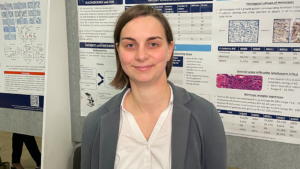In this poster, Dr Guilherme Nader Marta, medical oncologist at the Dana Farber Cancer Institute in Boston, US, presented the prognostic and predictive values of HER2-low in early breast cancer in the PALLAS trial.
Researchers investigated the role of HER2 low status as a prognostic and predictive factor in patients enrolled in the PALLAS trial, a phase III study assessing the adjuvant use of palbociclib in ER+ breast cancer patients. The analysis included 92% of the participants from the original PALLAS trial population.
The findings revealed that HER2 low status did not show a significant difference in terms of prognosis and was not associated with a significant variation in the observed benefits from palbociclib treatment. While the prognostic and predictive values did not reach statistical significance, an interesting result emerged—a notable geographic heterogeneity in the HER2-low biomarker. There was a significant difference in the prevalence of HER2-low between North America and Europe, as well as other regions worldwide. This finding gains importance considering the emerging relevance of HER2-low as a target for treatments with agents such as ADCs targeting HER2.
The observed differences in HER2 low prevalence across countries underscore the need for careful consideration. Importantly, the assays used to assess HER2-low were initially designed to distinguish between HER2+ and HER2-, not specifically for diagnosing HER2-low disease. These findings suggest the necessity of ongoing efforts to refine and identify this population more precisely, especially given the availability of specific treatments tailored for HER2 low patients.
Reference:
Nader Marta G. et al., Clinical characterization, prognostic and predictive values of HER2-low in early breast cancer in the PALLAS trial- SABCS 2023, #P01-01-13


With the educational support of:
 |
 |
 |